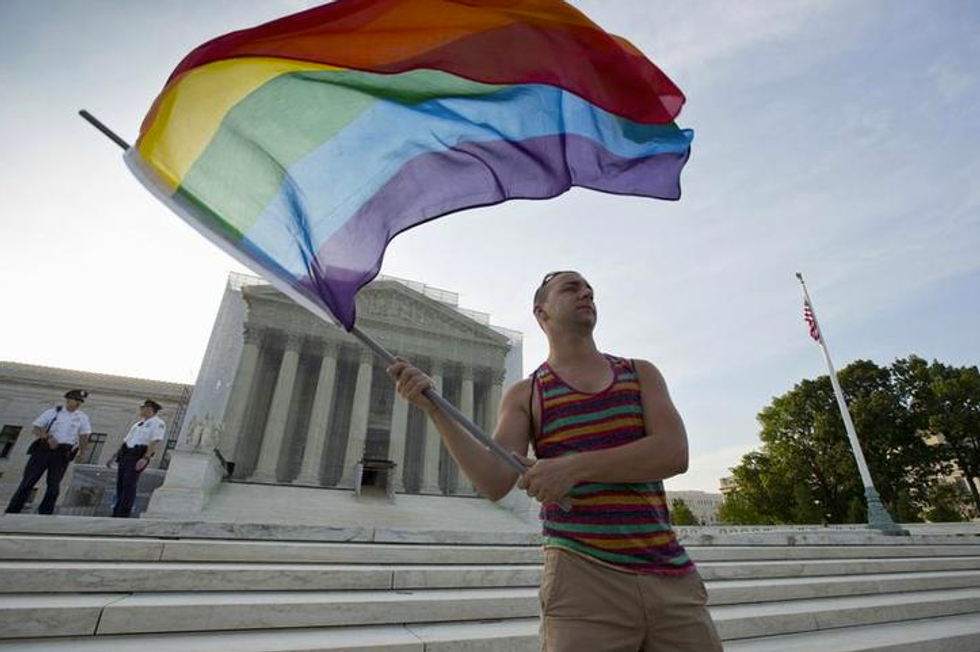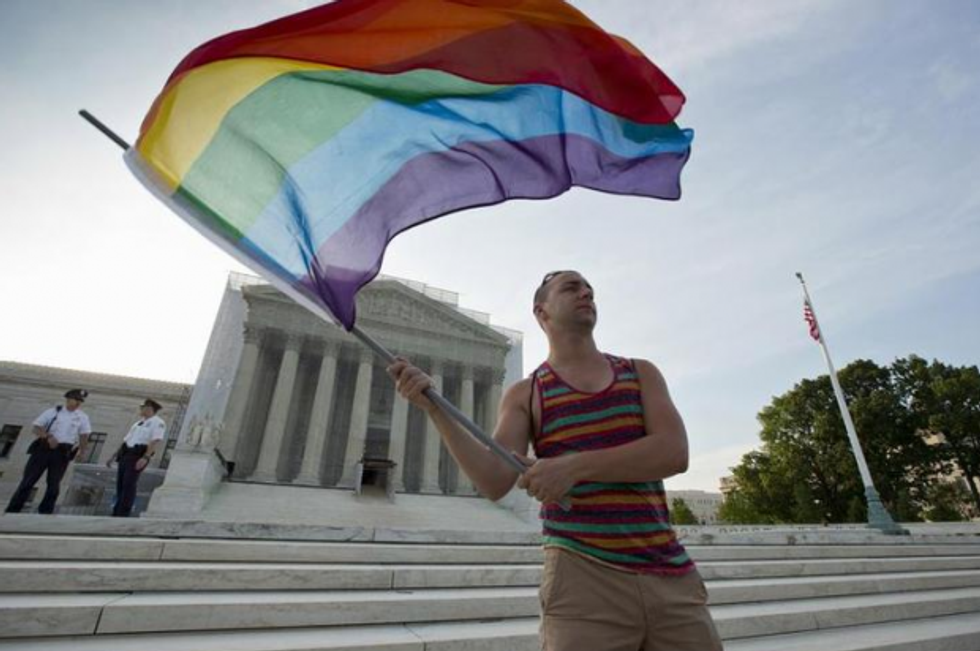
© 2026 Blaze Media LLC. All rights reserved.
"Does the Fourteenth Amendment require a state to license a marriage between two people of the same sex?"
The Supreme Court said Friday it would hear four cases on same-sex marriage, an announcement that means the Court can be expected to rule on the controversial issue by the summer.
The Court consolidated four cases that came out of Kentucky, Michigan, Ohio and Tennessee. The Court's ruling will likely go a long way toward unifying the various state positions on gay marriage.

Image: AP Photo/J. Scott Applewhite
The Court indicated that the case may turn on how to interpret the 14th Amendment to the Constitution. That amendment says everyone born or naturalized in the U.S. is a U.S. citizen, and says "no state shall make or enforce any law which shall abridge the privileges or immunities of citizens of the United States; nor shall any state deprive any person of life, liberty, or property, without due process of law."
Justices posed two questions that they want answered during oral arguments, which will be in the spring. One is, "Does the Fourteenth Amendment require a state to license a marriage between two people of the same sex?"
The other is, "Does the Fourteenth Amendment require a state to recognize a marriage between two people of the same sex when their marriage was lawfully licensed and performed out-of-state?"
Justices will hear 90 minutes of argument on the first question, and an hour on the second.
Last year, the Supreme Court declined to take up cases from five states that wanted to appeal lower court rulings invalidating their laws banning same-sex marriage. That decision allowed the lower rulings against those state laws to stand, and it led to a wave of same-sex marriages in those states.
That decision effectively legalized gay marriage in 24 states, and today, those marriages are legal in 36 states. It also prompted Sen. Ted Cruz (R-Texas) to warn that federal courts should not be meddling at all with state laws dealing with marriage, and said he would propose an amendment to the Constitution to prevent further meddling.
At the time, some suspected that dissenting views from other courts could be taken up by the Supreme Court, and may be what is happening now. A Supreme Court decision against laws in Kentucky, Michigan, Ohio and Tennessee could legal to legalized marriage in those states and the 10 others where same-sex marriage is illegal.
Want to leave a tip?
We answer to you. Help keep our content free of advertisers and big tech censorship by leaving a tip today.
Want to join the conversation?
Already a subscriber?
more stories
Sign up for the Blaze newsletter
By signing up, you agree to our Privacy Policy and Terms of Use, and agree to receive content that may sometimes include advertisements. You may opt out at any time.
Related Content
© 2026 Blaze Media LLC. All rights reserved.
Get the stories that matter most delivered directly to your inbox.
By signing up, you agree to our Privacy Policy and Terms of Use, and agree to receive content that may sometimes include advertisements. You may opt out at any time.






